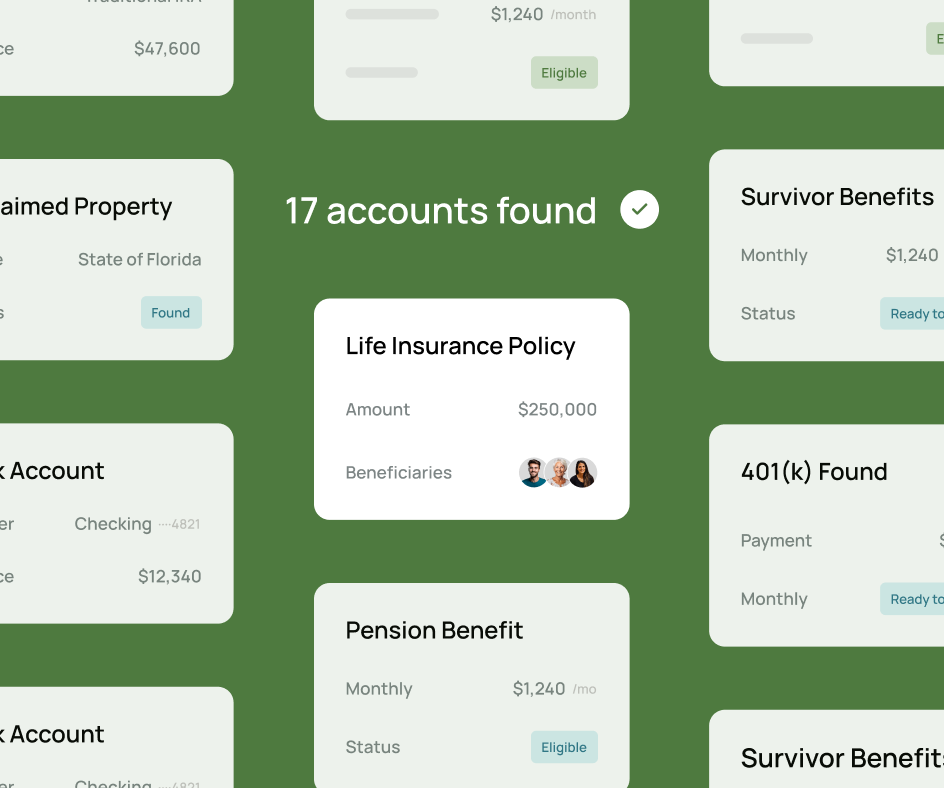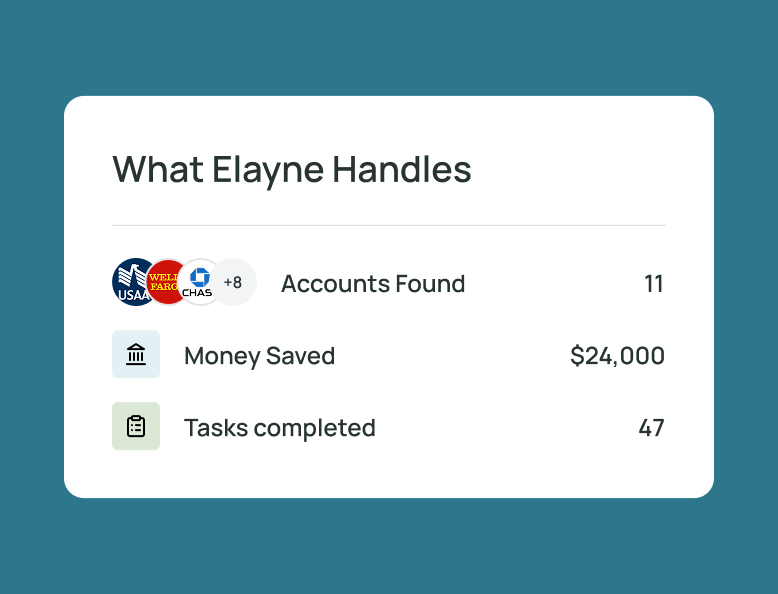Losing a parent is one of life’s most profound losses. In the wake of such grief, you may find yourself overwhelmed by sorrow while simultaneously being expected to take immediate action on estate matters. For many, this is unfamiliar territory.
While grief takes its course, there are certain logistical steps that must be taken in the early days and weeks following the loss. The Care Team at Elayne put this guide together as a compassionate starting point to help walk you through those first tasks, with a more comprehensive post-loss checklist covering every detail—so you don’t have to worry about missing a step – available free of cost in the Elayne platform.
{{blog-cta-financial}}
The Emotional and Practical Collision
The death of a parent doesn’t just bring emotional pain—it often triggers a series of responsibilities that must be handled swiftly. From notifying family members to honoring final wishes and securing your parent’s legacy, you may feel as though there’s no room to grieve. But it’s important to remember: you don’t have to do it all at once, and you don’t have to do it alone.
This guide offers a few key tasks to help you find footing during those early days. While this isn’t a complete list, it introduces some of the most urgent and important responsibilities.
1. Get a Legal Pronouncement of Death
If your parent passed away in a hospital or nursing facility, the staff will handle this step. If the death occurred at home, you’ll need to contact emergency services or a hospice nurse to officially pronounce the death. This document is necessary to obtain death certificates, manage funeral arrangements, and handle legal matters related to the estate.
2. Notify Close Family and Friends
One of the hardest but most necessary early steps is informing others. Start by calling immediate family members, close friends, and any caregivers or clergy your parent may have had a relationship with. If you're not emotionally able to make the calls yourself, ask a trusted friend or relative to assist.
3. Secure the Home and Property
If your parent lived alone, it’s important to secure their home as soon as possible. Lock all doors and windows, check mail and packages regularly, and consider changing the locks if needed. Be sure to also secure any vehicles and pets. This helps protect property and reduce the risk of theft or damage.
4. Locate the Will and Other Legal Documents
Finding your parent’s will is essential for identifying the executor and carrying out their final wishes. The will may be stored in a safe, filing cabinet, safety deposit box, or with an attorney. You’ll also need to gather key documents such as a birth certificate, marriage license, military discharge papers (if applicable), and any insurance policies or financial statements. These will be important in probate and estate matters.
5. Request Multiple Copies of the Death Certificate
You’ll need multiple certified copies of your parent’s death certificate—often at least 10—to handle everything from insurance claims to bank account closures and utility cancellations. These can be obtained through the funeral home or from your state’s vital records office.
6. Plan the Funeral or Memorial Service
If your parent preplanned their funeral or purchased a burial or cremation plan, those arrangements may already be in place. Otherwise, you'll need to choose a funeral home, decide between burial or cremation, and begin planning the service. Keep in mind cultural, religious, or personal wishes your parent may have expressed.
7. Contact Their Employer or Pension Provider (If Applicable)
If your parent was still working, you’ll need to notify their employer. Ask about any remaining paychecks, life insurance, or retirement benefits. If they were retired and receiving a pension or Social Security, contact those agencies as well to avoid overpayment, which may need to be repaid later.
8. Begin Managing Financial and Legal Affairs
Once you’ve located the will and been named executor (if applicable), you’ll be responsible for handling your parent’s estate. This includes opening a probate case (if required), paying outstanding bills, notifying creditors, closing accounts, and distributing assets to heirs. Probate laws vary by state, and you may want to consult an estate attorney for guidance—especially if the estate is complex or disputed.
9. Notify Key Agencies and Institutions
You’ll need to notify a range of institutions, including:
- Social Security Administration
- Banks and financial institutions
- Insurance providers
- Utility companies
- Credit bureaus
- Post office (to forward mail)
This helps protect your parent’s identity and prevent fraud while settling their estate.
{{blog-cta-financial}}
10. Take Time to Grieve
Perhaps the most important task of all is allowing yourself to grieve. Give yourself permission to feel everything—sadness, anger, guilt, relief, or even numbness. There’s no “right” way to mourn a parent. Consider leaning on friends, support groups, therapists, or spiritual communities to help carry you through.
Navigating a parent’s death is never easy. Whether expected or sudden, the experience often leaves us disoriented and uncertain of the path forward. That’s why having a clear, organized post-loss checklist can be an invaluable tool—not just to keep track of tasks, but to offer a sense of control and structure when everything feels unsteady.
If you've just lost a parent, we invite you to access Elayne’s Comprehensive Post-Loss Checklist free of cost - it includes a timeline for each task and deeper guidance on the legal, financial, and emotional steps you’ll need to take.
You don’t need to have all the answers today—but with the right support and resources, you can take each step forward, one at a time.













































